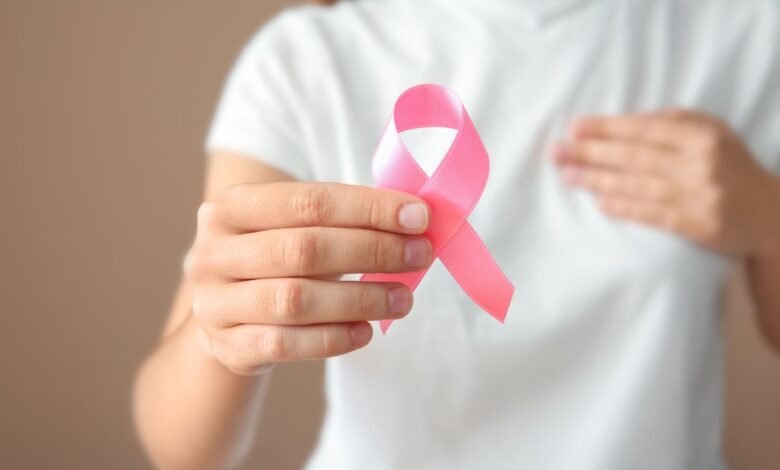Early Breast Cancer in Women: Understanding, Detection, and Treatment

Breast cancer is a formidable adversary, affecting millions of women worldwide. This article delves into the intricacies of early breast cancer, emphasizing the significance of early detection and exploring various aspects related to its diagnosis and treatment.
EXPLORE THE CONTENTS
What is early breast cancer?
Defining Early Breast Cancer
Early breast cancer refers to the initial stages of malignant cell growth in the breast tissue. Detecting cancer at this early stage significantly increases the chances of successful treatment and survival.
Importance of Early Detection
Understanding the importance of detecting breast cancer early is crucial for women of all ages. Early detection allows for less invasive treatment options and a higher likelihood of complete recovery.
Risk Factors
Genetic Predisposition
Genetic factors play a pivotal role in breast cancer risk. Individuals with a family history of breast cancer or specific genetic mutations are at a higher risk.
Hormonal Influences
Hormonal changes, such as those occurring during menstruation, pregnancy, and menopause, can impact breast cancer risk. Understanding these influences is vital for prevention and early detection.
Lifestyle Factors
Certain lifestyle choices, including diet, exercise, and alcohol consumption, can contribute to the development of breast cancer. Awareness of these factors empowers women to make informed decisions for their well-being.
Signs and Symptoms
Changes in Breast Appearance
Unexplained changes in breast size, shape, or texture may be indicative of early breast cancer. Regular self-examination and awareness of these changes are key.
Unexplained Pain or Discomfort
Persistent pain or discomfort in the breast area should not be ignored. Consulting with a healthcare professional for a proper evaluation is crucial for an early diagnosis.
Nipple Abnormalities
Changes in nipple appearance, such as inversion or discharge, warrant attention. These subtle signs may indicate early breast cancer and should prompt immediate medical consultation.
Diagnostic Techniques
Mammography
Mammography is a widely used screening tool for detecting breast abnormalities. Understanding the procedure and its frequency is essential for women of various age groups.
Ultrasound
In certain cases, ultrasound imaging complements mammography for a more comprehensive evaluation of breast tissue. Knowledge of when and why ultrasounds are recommended enhances early detection efforts.
Biopsy
When abnormalities are detected, a biopsy is often performed to confirm the presence of cancerous cells. Exploring this diagnostic step aids in demystifying the process for those undergoing evaluation.
The Role of Self-Examination
How to Perform a Breast Self-Exam
Regular self-examinations empower women to become familiar with their breast tissue. Simple yet effective techniques can be employed for self-checks at home.
Frequency and Importance
Understanding how often to perform self-exams and recognizing the importance of this routine in early detection contribute to proactive healthcare practices.
Also Read: Top 5 Drinks for Healthy Immune System
Screening Guidelines
Age-Based Recommendations
Screening guidelines vary based on age and risk factors. Awareness of these recommendations ensures that women receive appropriate screenings at the right intervals.
High-Risk Groups
Women with specific risk factors, such as family history or genetic mutations, may need more frequent or specialized screenings. Tailoring screening approaches to individual risk profiles is critical.
Treatment Options
Surgery
Surgical interventions, such as lumpectomy or mastectomy, are common treatment options for early breast cancer. Knowing the available choices empowers individuals to make informed decisions.
Radiation Therapy
Understanding the role of radiation therapy in treating breast cancer, its side effects, and potential benefits enhances the decision-making process for patients and their healthcare teams.
Chemotherapy
Chemotherapy is a systemic treatment that targets cancer cells throughout the body. Awareness of its potential side effects and efficacy in early breast cancer is essential.
Hormone Therapy
Hormone therapy is often prescribed based on the specific characteristics of the cancer. Exploring the role of hormones in cancer growth and treatment provides valuable insights.
The Importance of Emotional Support
Psychological Impact of Diagnosis
A breast cancer diagnosis can have profound emotional effects. Recognizing and addressing the psychological impact is integral to comprehensive cancer care.
Support Groups and Counseling
Engaging with support groups and seeking professional counseling can provide emotional support and practical guidance during the challenging journey of early breast cancer treatment.
Survivor Stories
Empowering Narratives
Real-life stories of breast cancer survivors inspire hope and resilience. Sharing these narratives fosters a sense of community and encouragement among those facing similar challenges.
Lessons Learned
Survivors often share valuable lessons learned during their journey. Extracting wisdom from these experiences contributes to a holistic understanding of early breast cancer and its aftermath.
Advances in Early Detection Technologies
Emerging Technologies
Ongoing research continues to introduce innovative technologies for early breast cancer detection. Staying informed about these advancements ensures individuals benefit from the latest diagnostic tools.
Improving Accuracy and Efficiency
Efforts to enhance the accuracy and efficiency of early detection technologies are paramount. Exploring how these advancements impact patient outcomes is crucial for healthcare professionals and patients alike.
Lifestyle Changes for Prevention
Diet and Nutrition
Adopting a healthy diet rich in antioxidants and nutrients is a proactive measure for breast cancer prevention. Understanding the role of nutrition in overall well-being contributes to a holistic approach to health.
Regular Exercise
Incorporating regular exercise into daily life not only promotes physical health but also reduces the risk of breast cancer. Simple lifestyle changes can have a significant impact on overall well-being.
The Role of Healthcare Professionals
Regular Check-ups and Follow-ups
Regular check-ups with healthcare professionals, including breast exams and screenings, are fundamental for early detection. Maintaining a proactive approach to healthcare enhances overall well-being.
Communication with Your Healthcare Team
Open communication with healthcare providers fosters a collaborative approach to breast health. Establishing a strong relationship with your healthcare team ensures personalized care and support.
The Future of Early Breast Cancer Research
Promising Discoveries
Ongoing research holds promise for groundbreaking discoveries in early breast cancer treatment. Staying informed about the latest research contributes to a hopeful outlook for the future.
Targeted Therapies
Advancements in targeted therapies aim to provide more effective and less invasive treatment options for early breast cancer. Understanding these evolving approaches empowers patients and healthcare professionals.
Conclusion
In conclusion, early breast cancer awareness, detection, and treatment are pivotal for improved outcomes and survivorship. By understanding risk factors, recognizing symptoms, and staying informed about advancements in research and treatment, individuals can take proactive steps toward breast health.
Frequently Asked Questions
- How often should I perform a breast self-exam?
- Regular self-exams are recommended once a month, preferably a few days after your menstrual cycle.
- Are there alternative treatments for early breast cancer besides surgery?
- Depending on the specific characteristics of the cancer, alternative treatments, such as targeted therapies, may be considered.
- What lifestyle changes can I make to reduce my risk of early breast cancer?
- Adopting a healthy diet, engaging in regular exercise, and minimizing alcohol intake are lifestyle changes that can contribute to breast cancer prevention.
- At what age should I start getting regular mammograms?
- Mammogram recommendations vary, but most organizations suggest starting regular screenings at age 40.
- Is genetic testing necessary if no one in my family has had breast cancer?
- While family history is a significant factor, genetic testing may still be considered based on other risk factors. Discuss this with your healthcare provider.







